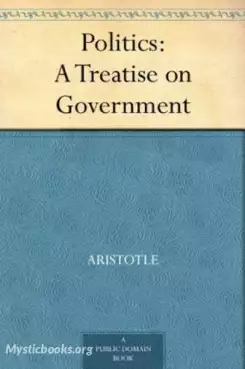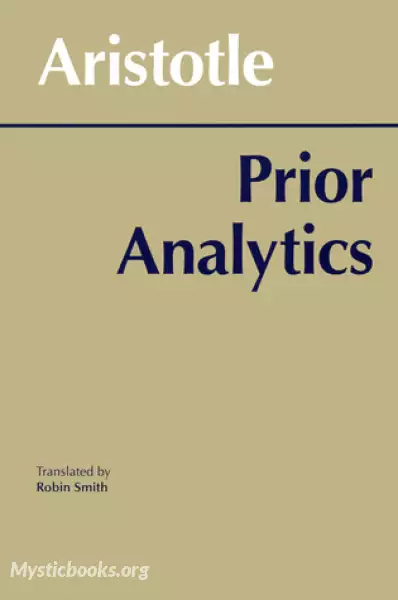
Prior Analytics
by Aristotle
'Prior Analytics ' Summary
The term analytics comes from the Greek words analytos and analyo. However, in Aristotle's corpus, there are distinguishable differences in the meaning of ἀναλύω and its cognates. There is also the possibility that Aristotle may have borrowed his use of the word "analysis" from his teacher Plato. On the other hand, the meaning that best fits the Analytics is one derived from the study of Geometry and this meaning is very close to what Aristotle calls episteme knowing the reasoned facts. Therefore, Analysis is the process of finding the reasoned facts.
Aristotle's Prior Analytics represents the first time in history when Logic is scientifically investigated. On those grounds alone, Aristotle could be considered the Father of Logic for as he himself says in Sophistical Refutations, "When it comes to this subject, it is not the case that part had been worked out before in advance and part had not; instead, nothing existed at all."
A problem in meaning arises in the study of Prior Analytics for the word syllogism as used by Aristotle in general does not carry the same narrow connotation as it does at present; Aristotle defines this term in a way that would apply to a wide range of valid arguments. Some scholars prefer to use the word "deduction" instead as the meaning given by Aristotle to the Greek word syllogismos At present, syllogism is used exclusively as the method used to reach a conclusion which is really the narrow sense in which it is used in the Prior Analytics dealing as it does with a much narrower class of arguments closely resembling the "syllogisms" of traditional logic texts: two premises followed by a conclusion each of which is a categorical sentence containing all together three terms, two extremes which appear in the conclusion and one middle term which appears in both premises but not in the conclusion. In the Analytics then, Prior Analytics is the first theoretical part dealing with the science of deduction and the Posterior Analytics is the second demonstratively practical part. Prior Analytics gives an account of deductions in general narrowed down to three basic syllogisms while Posterior Analytics deals with demonstration.
Book Details
Authors
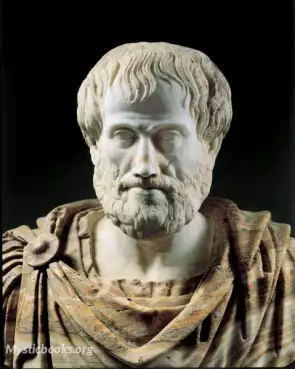
Aristotle
Greece
Aristotle (384–322 BC) was a Greek philosopher and polymath during the Classical period in Ancient Greece. Taught by Plato, he was the founder of the Lyceum, the Peripatetic school of philosophy...
Books by AristotleListen/Download Audiobook
- Select Speed
Related books
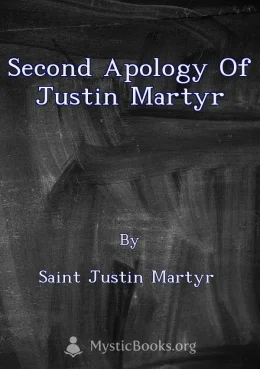
Second Apology of Justin Martyr by Saint Justin Martyr
The Second Apology of Justin Martyr is a powerful and eloquent defense of the Christian faith written in the mid-second century AD. Justin Martyr, a p...
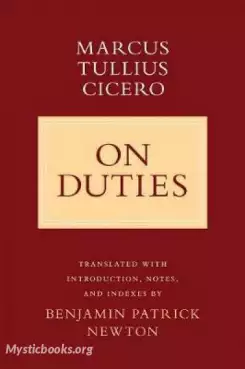
On Duties by Marcus Tullius Cicero
De Officiis (On Duties or On Obligations) is a 44 BC treatise by Marcus Tullius Cicero divided into three books, in which Cicero expounds his concepti...
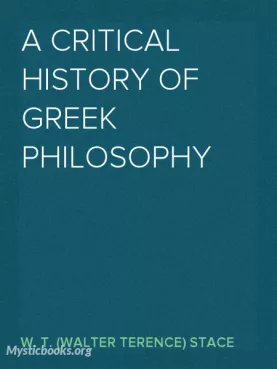
A Critical History of Greek Philosophy by Walter Terence Stace
It is a comprehensive analysis of Greek philosophical thought from its origins to the end of the Hellenistic period. This book was first published in...
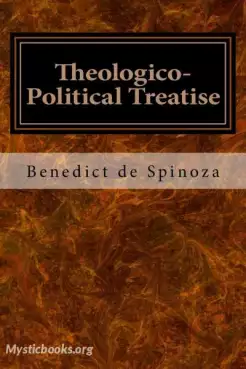
A Theologico-Political Treatise by Benedict de Spinoza
Written by the Dutch philosopher Benedictus Spinoza, the Tractatus Theologico-Politicus (TTP) or Theologico-Political Treatise was one of the most con...
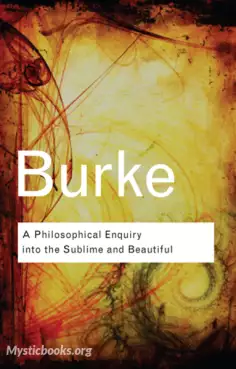
A Philosophical Enquiry by Edmund Burke
Burke's A Philosophical Enquiry is an important treatise in the history of philosophical aesthetics, putting forth a theory of two concepts of central...
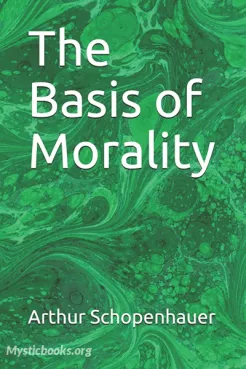
The Basis Of Morality by Arthur Schopenhauer
It is a philosophical treatise that delves into the fundamental principles of ethics and morality. Written in 1840, this book is widely considered to...

Bible (ASV) NT 19: Hebrews by American Standard Version
The Epistle to the Hebrews (abbr. Heb for citations) is one of the books in the New Testament. Though traditionally credited to the Apostle Paul, the...
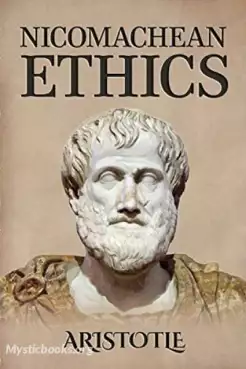
Nicomachean Ethics by Aristotle
The Nicomachean Ethics is the name normally given to Aristotle's best-known work on ethics. The work, which plays a pre-eminent role in defining Arist...
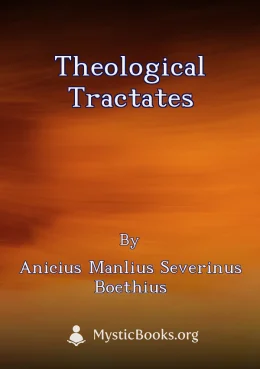
Theological Tractates by Anicius Manlius Severinus Boethius
This collection of theological tracts by Boethius, written in the final years of his life, delves into pivotal Christian doctrines. It examines the na...
Reviews for Prior Analytics
No reviews posted or approved, yet...
